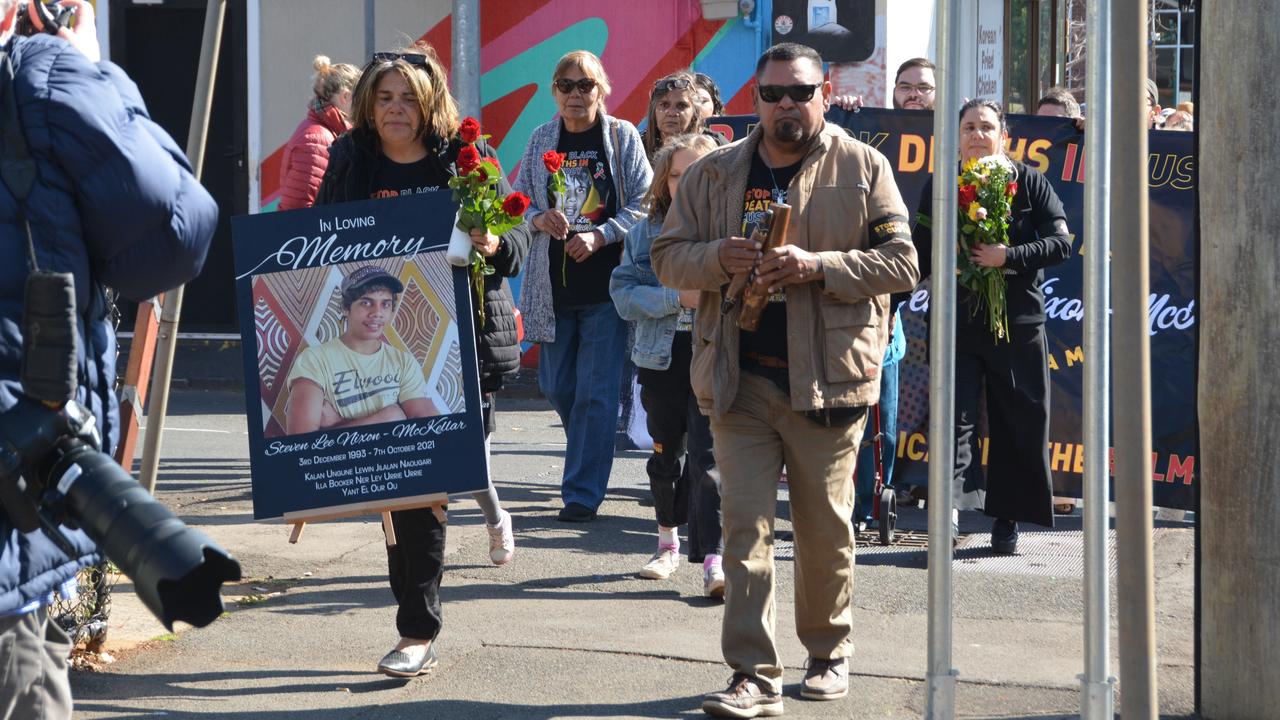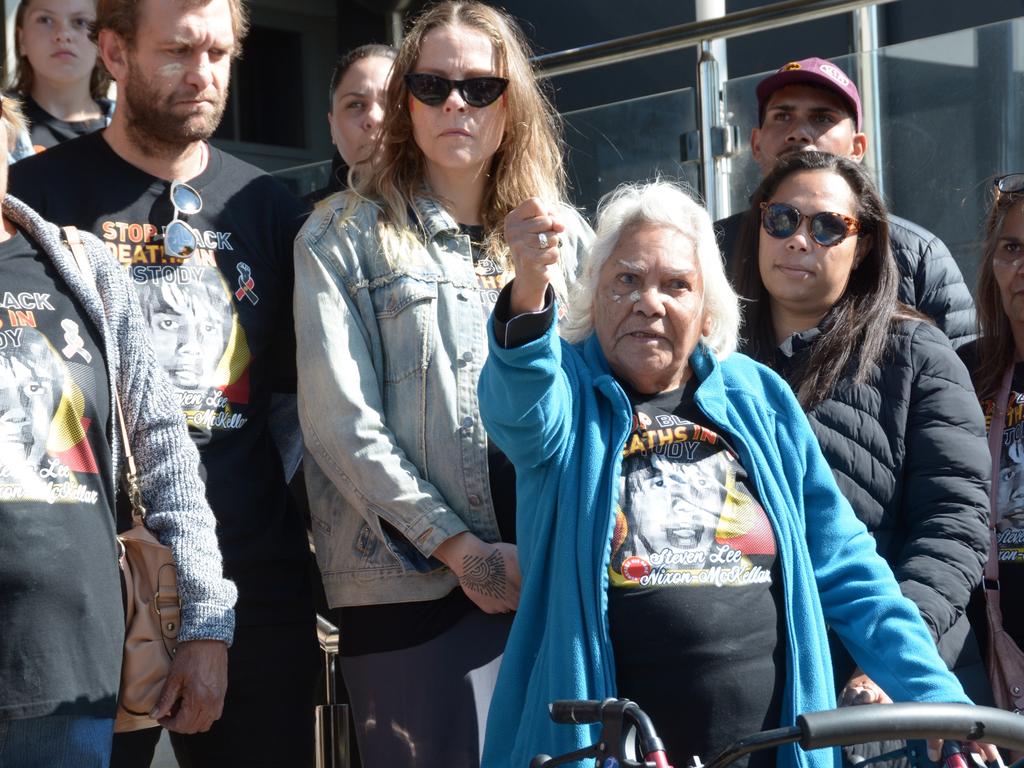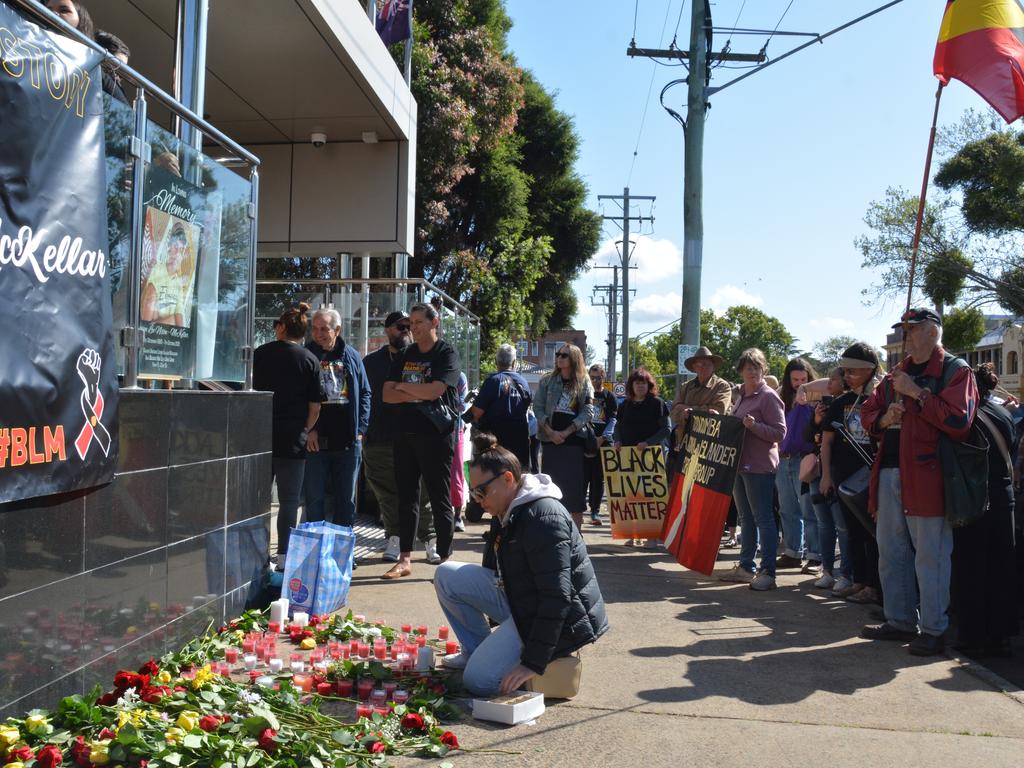Steven Nixon-McKellar coronial inquest: Officer who applied controversial neck restraint fronts inquest
The inquest into Steven Nixon-McKellar’s death in police custody has been told the officer who applied a controversial neck restraint thought something was ‘unusual’ when the young man passed out within an instant.

Police & Courts
Don't miss out on the headlines from Police & Courts. Followed categories will be added to My News.
The man who applied a Lateral Vascular Neck Restraint (LVNR) to Steven Nixon-McKellar in the moments before he died told a coronial inquest that it was unusual the deceased went limp almost instantaneously.
Senior Constable Tylarr Colman was called to an address in Short St, Newtown on October 7, 2021 after his colleagues Constable Brendon Smart and Senior Constable Simon Giuliano requested urgent backup.
They had been wrestling with Mr Nixon-McKellar for about five minutes after he was located in a stolen Subaru Forester, and were exhausted.
In body-worn camera footage played to the inquest, Senior Constable Colman is seen running up behind Mr Nixon-McKellar as Senior Constable Giuliano yells, “choke the c--t out, choke him out”.

Senior Constable Colman told the inquest that he took this to mean applying an LVNR.
The inquest was told that was the first time Senior Constable Colman had used the technique on a member of the public as part of his duties in the nine years since he enlisted in the Queensland Police Service.
The inquest was told Senior Constable Colman had used the technique about 75-100 times in the controlled environment of the competitive Brazilian jiu-jitsu arena.
“I placed my right arm around his body and positioned myself in a way to be able to apply that technique,” he said.
Senior Constable Colman told the inquest he manoeuvred Mr Nixon-McKellar’s chin into his elbow to apply pressure to the arteries running along the side of his neck, while also protecting his throat and air supply.
He went on to say that he could not see Mr Nixon-McKellar’s face so he was relying on information from Senior Constable Giuliano, who was facing Mr Nixon-McKellar.
The body-worn footage clearly showed Senior Constable Giuliano saying that Mr Nixon-McKellar “was out” as soon as the technique was applied.
“I immediately let go of the pressure and lowered him to the ground,” Senior Constable Colman told the inquest.
The officers then placed Mr Nixon-McKellar face down on the ground and applied handcuffs.
“We rolled him onto his side, that is when I noticed he was not breathing,” Senior Constable Colman said.
“Someone gave directions for cuffs to be removed, that is when I started to do (CPR) compressions.”

Mr Nixon-McKellar could not be revived and he died within minutes.
Senior Constable Colman told the inquest that something was off when compared to other times he had used the technique in training or during competitive Brazilian jiu-jitsu.
“I found it strange for him to go unconscious that quickly,” he said.
“Usually it takes a number of seconds, they may fight you with their arms, or gasp for air.”
Lawyers acting on behalf of Mr Nixon-McKellar’s family probed why the police opted for an LVNR and the level of assessment they undertook before applying it.
Stewart Levitt alleged Senior Constable Colman had not checked what first aid materials were nearby, including CPR ‘airway bags’, or that he was not able to make a proper assessment of Mr Nixon-McKellar’s level of exhaustion.
Senior Constable Colman agreed that he did not check the first aid kits in the nearby police vehicles, but that he did assess Mr Nixon-McKellar’s fatigue
Mr Levitt asked what other “use of force” options Senior Constable Colman considered.
Senior Constable Colman replied that using OC spray or a taser risked incapacitating his fellow officers.

“I believe it was a less than lethal use of force,” he said.
Mr Levitt continued to press for more information about why Senior Constable Colman acted in haste.
“I put it to you that immediately before you applied the LVNR, Mr Nixon-McKellar said repeatedly, ‘you’ve got me, you’re got me’ and he visibly gasped and made incomprehensible noises,” he said.
“You said you did not hear that but I suggest to you that if you had spent more than five seconds assessing the situation you would have taken the view that you could have easily overpowered Mr Nixon-McKellar, brought him to the ground and handcuffed him without having to apply any form of neck restraint.”
“I don’t believe so,” Senior Constable Colman replied.
“There were two other people to assist you, it was just a question of tipping the balance in favour of the police, was it not?” Mr Levitt continued.
“The two officers were already fatigued, they had been fighting with him and had not got him to the ground at that stage,” Senior Constable Colman replied.
The inquest before State Coroner Terry Ryan continues.








